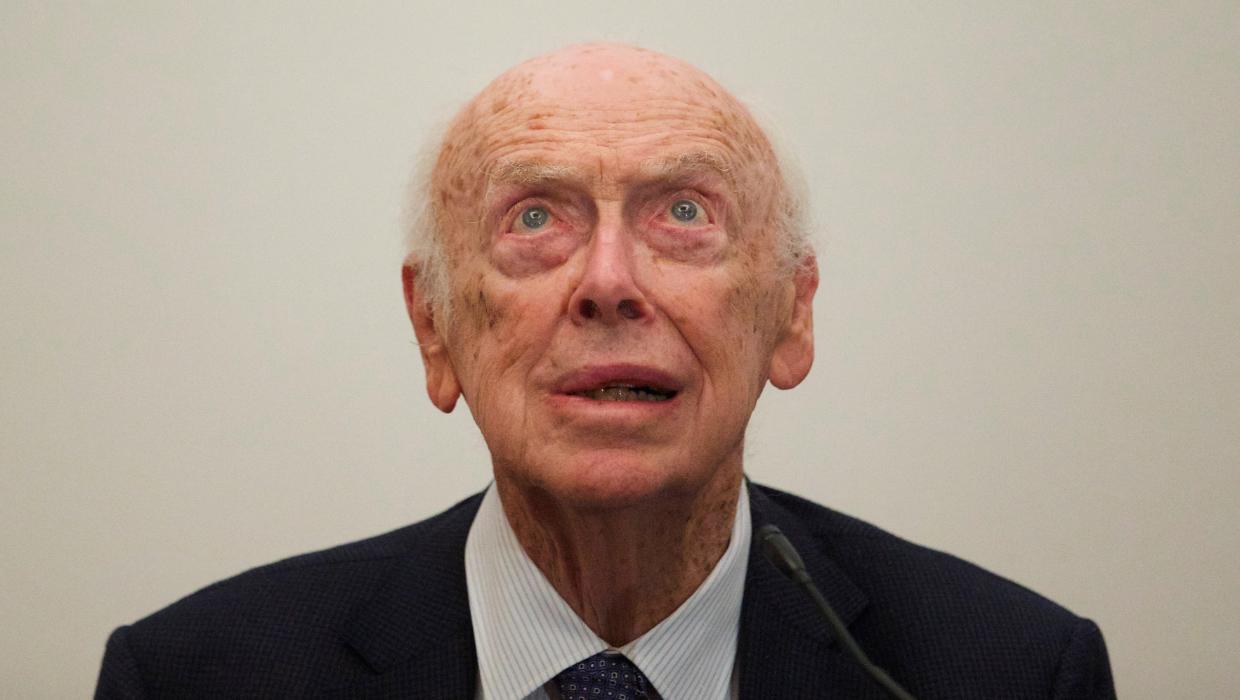Science
Renowned Scientist James Watson, Co-Discoverer of DNA, Dies at 95

James Watson, the scientist who garnered global acclaim for co-discovering the double helix structure of DNA, has passed away at the age of 95. Watson’s groundbreaking work in 1953 with Francis Crick set the foundation for modern genetics and earned them both the Nobel Prize in Physiology or Medicine in 1962. Despite his significant contributions to science, Watson’s later years were marked by controversy due to his inflammatory remarks on race and intelligence.
Born on April 6, 1920, in Chicago, Watson’s early interest in biology led him to pursue a career in genetics. His collaboration with Crick at the University of Cambridge resulted in one of the most important scientific discoveries of the 20th century. The revelation of DNA’s twisted-ladder structure transformed the fields of biology and medicine, influencing countless advances in genetic research and biotechnology.
Controversies and Professional Censure
Despite his scientific achievements, Watson’s reputation suffered in the latter part of his life. He faced backlash for comments perceived as racist and sexist. In interviews and public appearances, he expressed controversial views that many found deeply offensive. These remarks led to significant professional consequences, including the revocation of honorary titles from various institutions, including Cold Spring Harbor Laboratory, where he had served as president.
In 2007, Watson controversially suggested that intelligence is linked to race, sparking widespread outrage. Following these comments, he was removed from several academic positions, and many organizations distanced themselves from him. These events overshadowed his earlier accomplishments, and he became a polarizing figure in the scientific community.
Legacy of a Scientific Pioneer
Despite the controversies, Watson’s contributions to science cannot be understated. His work laid the groundwork for advancements in molecular biology, paving the way for innovations in genetic engineering, personalized medicine, and forensic science. The impact of his discovery continues to resonate, as researchers build upon the knowledge of DNA structure and function.
Watson’s passing marks the end of an era in genetics. He leaves behind a complex legacy, characterized by both extraordinary scientific achievement and profound ethical questions. As the scientific community reflects on his life, discussions will likely continue regarding the responsibilities of scientists in public discourse and the implications of their statements beyond the laboratory.
Watson’s family has not publicly disclosed details about the circumstances surrounding his death. As tributes pour in from around the world, many will remember him not only for his pivotal role in the discovery of DNA but also for the lessons learned from his later controversies.
-

 World3 months ago
World3 months agoTest Your Knowledge: Take the Herald’s Afternoon Quiz Today
-

 Sports3 months ago
Sports3 months agoPM Faces Backlash from Fans During Netball Trophy Ceremony
-

 Lifestyle3 months ago
Lifestyle3 months agoDunedin Designers Win Top Award at Hokonui Fashion Event
-

 Sports3 months ago
Sports3 months agoLiam Lawson Launches New Era for Racing Bulls with Strong Start
-

 Lifestyle3 months ago
Lifestyle3 months agoDisney Fan Reveals Dress Code Tips for Park Visitors
-

 World4 months ago
World4 months agoCoalition Forms to Preserve Māori Wards in Hawke’s Bay
-

 Health3 months ago
Health3 months agoWalking Faster Offers Major Health Benefits for Older Adults
-

 Politics3 months ago
Politics3 months agoScots Rally with Humor and Music to Protest Trump’s Visit
-

 Top Stories4 months ago
Top Stories4 months agoUK and India Finalize Trade Deal to Boost Economic Ties
-

 Entertainment4 months ago
Entertainment4 months agoExperience the Excitement of ‘Chief of War’ in Oʻahu
-

 World4 months ago
World4 months agoHuntly Begins Water Pipe Flushing to Resolve Brown Water Issue
-

 Science4 months ago
Science4 months agoNew Interactive Map Reveals Wairarapa Valley’s Geological Secrets









